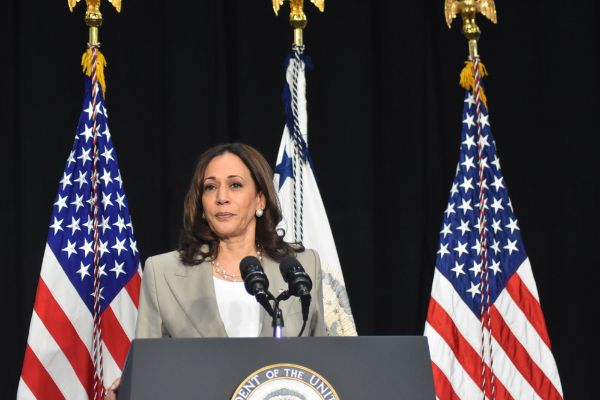In a recent interview, Vice President Kamala Harris accused former President Donald Trump of being connected to a conservative initiative known as Project 2025, describing it as a “blueprint” of policy plans should Trump or another Republican win the presidency. Harris pointed out that Project 2025 frequently references Trump and includes significant input from figures in his previous administration, like Ben Carson, Ken Cuccinelli, and Paul Dans.
While Trump has publicly distanced himself from Project 2025, calling it unrelated to his own agenda, the 900-page document produced by the conservative Heritage Foundation outlines extensive policy changes, covering issues from Social Security and Medicare to healthcare costs. During her conversation with CBS’s Norah O’Donnell, Harris claimed that Trump’s influence is deeply embedded in the document, emphasizing that it reflects Trump’s potential plans for his next term.
Harris encouraged people to read Project 2025 for insights into Republican strategies, alleging it outlines plans to reduce Medicare support and dismantle the recently enacted $35 monthly cap on insulin costs. She underscored the stakes as the election nears, noting her slight polling lead over Trump.
Despite Trump’s denial of involvement, CNN reported in July that over 140 former Trump administration members contributed to the project. The comprehensive document has become a focal point in debates about the direction of U.S. policy, especially regarding social safety nets and healthcare, should a conservative administration take office. With election day looming, Harris’s remarks reflect her stance on defending current policies against potential conservative reversals.
While Harris raises concerns over Project 2025’s influence, supporters view it as a roadmap to strengthen conservative values in the U.S. government, focusing on policies they believe will restore economic stability and uphold traditional American principles. Advocates argue that reducing government intervention in areas like Medicare and Medicaid could foster innovation and efficiency in healthcare, while policies targeting fiscal responsibility may address the national debt. The Heritage Foundation’s involvement reflects a commitment to a clear, principled approach, which they argue is necessary to advance conservative goals and empower future generations.

